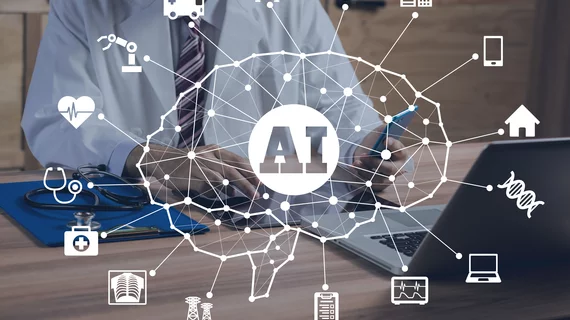Caltech’s new machine learning algorithm predicts IQ from fMRI
Scientists at the California Institute of Technology can now assess a person’s intelligence in moments with nothing more than a brain scan and an AI algorithm, university officials announced this summer.
Caltech researchers led by Ralph Adolphs, PhD, a professor of psychology, neuroscience and biology and chair of the Caltech Brain Imaging Center, said in a recent study that they, alongside colleagues at Cedars-Sinai Medical Center and the University of Salerno, were successfully able to predict IQ in hundreds of patients from fMRI scans of resting-state brain activity. The work is pending publication in the journal Philosophical Transactions of the Royal Society.
Adolphs and his team collected data from nearly 900 men and women for their research, all of whom were part of the National Institutes of Health (NIH)-driven Human Connectome Project. The researchers trained their machine learning algorithm on the complexities of the human brain by feeding the brain scans and intelligence scores of these hundreds of patients into the algorithm—something that took very little effort on the patients’ end.
“We found if we just have people lie in the scanner and do nothing while we measure the pattern of activity in their brain, we can use the data to predict their intelligence,” Adolphs said in a Calteach release.
After processing the data, the algorithm was able to predict intelligence at statistically significant levels across the subject pool, the authors said.
“The information that we derive from the brain measurements can be used to account for about 20 percent of the variance in intelligence we observed in our subjects,” Julien Dubois, PhD, a co-author of the paper, said in the release. “We are doing very well, but we are still quite far from being able to match the results of hour-long intelligence tests like the Wechsler Adult Intelligence Scale.”
In a parallel study, the authors attempted to predict personalities from the same brain scans, Dubois said, using an AI approach that measured openness to experience, conscientiousness, extraversion, agreeableness and neuroticism. It wasn’t successful, but Dubois said was expected.
“The personality scores in the database are just from short, self-report questionnaires,” he said. “That’s not going to be a very accurate measure of personality to begin with, so it is no wonder we cannot predict it well from the MRI data.”
He said that, eventually, the team would like to see MRIs work not only for diagnosing tumors and physical diseases but also conditions like anxiety, schizophrenia and autism.
“Functional MRI has not yet delivered on its promise as a diagnostic tool,” Dubois said. “We, and many others, are actively working to change this. The availability of large datasets that can be mined by scientists around the world is making this possible.”

